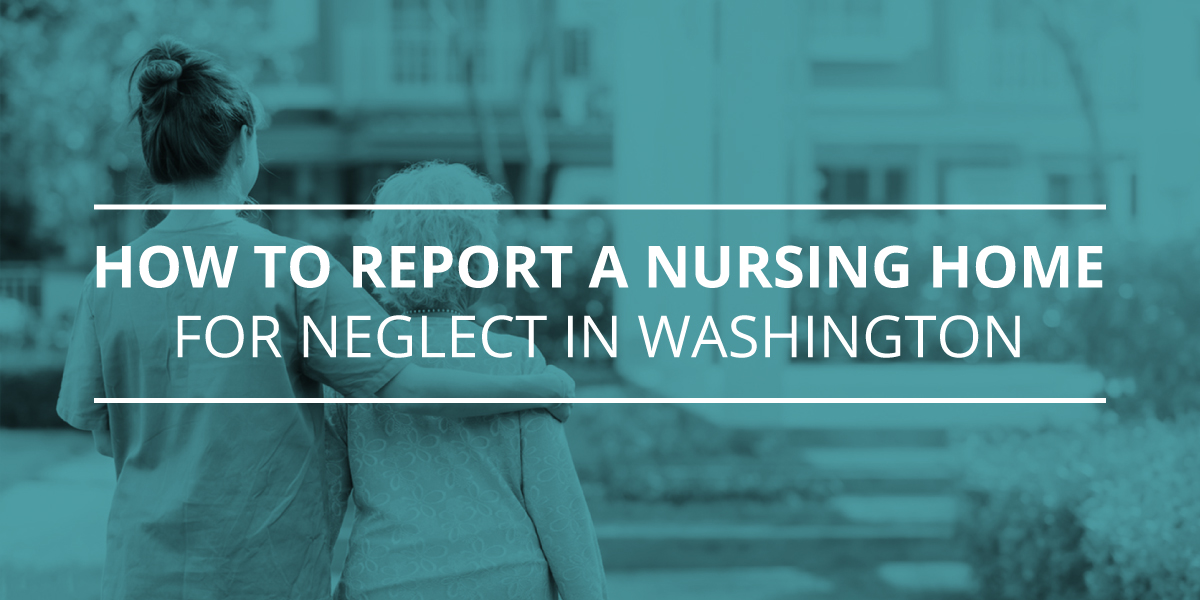Your loved one doesn’t give up their rights and freedoms by moving into a nursing home. Washington law is clear on that and codifies residents’ rights in the Revised Code of Washington, Chapter 70.129. Your loved one has the right to be free from abuse and neglect and to file a complaint alleging any abuse or neglect at the facility. Despite these standards, many nursing homes throughout Washington fall short in providing excellent care. If you’re worried your loved one’s injury or worsening condition is from neglect, talk with a Seattle nursing home abuse lawyer right away. At Menzer Law, we can explain how to report nursing home neglect and pursue a legal claim for compensation.
What is Nursing Home Neglect?
Unlike abuse, which is intentionally harmful conduct, neglect isn’t necessarily malicious. Instead,, it’s a lack of proper care. Nursing home neglect entails one or more residents not receiving the daily care and medical attention they’re entitled to, which causes them harm. For example, your loved one might not receive enough fluids or adequate nutrition, leading to dehydration, malnutrition, and additional complications. They may not receive help bathing, changing clothes, and brushing their teeth. Sitting in soiled clothing and bedding can lead to infections, bedsores, and a lower quality of life.
How to Report a Nursing Home for Neglect
Inform an Administrator
If you suspect your loved one isn’t receiving adequate care, inform the nursing home administration in person and in writing. You want the facility on notice about the problem. You also want the administration to know you’re keeping a close eye on your loved one. When you speak with an administrator about the conditions, ask about the facility’s formal complaint process. It’s best to be prepared to file a complaint if conditions don’t improve quickly.
Inform the State
If conditions at the facility don’t improve, notify the State of Washington’s Department of Social and Health Services’ (DSHS) Aging and Long-Term Care Support Administration (ALTSA). You can reach the DSHS ENDHARM outline at 1-866-363-4276. Other options are calling Adult Protective Services at 1-877-734-6277; the DSHS Complaint Resolution Unit at 800-562-6078; or Washington State Long-Term Care (LTC) Ombudsman at 800-562-6028. You can file a complaint with Adult Protective Services or an LTC ombudsman online. It’s best to contact an LTC ombudsman for the county where the nursing home is located.
Why You Should Notify the State
You may be tempted to handle the issue yourself. However, DSHS can do more than you when investigating alleged nursing home neglect or abuse. Authorities can access records you can’t and have better means of holding the facility responsible. By bringing in the state, there’s a greater likelihood that the nursing home will improve, protecting all the residents.
Causes of Nursing Home Neglect
There are many reasons why nursing home staff members neglect residents. The facility might be understaffed, or members of the staff might be inadequately trained or supervised. Workers with minimal training may be required to perform tasks meant for more skilled workers. This lack of proper training puts residents like your loved one in jeopardy. For instance, a staff member who isn’t properly trained in moving someone with reduced mobility might cause that resident harm.
Signs of Nursing Home Neglect
Some common signs of nursing home neglect include:
- Poor personal hygiene: Do you notice your loved one’s clothes are often dirty? Do they have body odor or bad breath? Ask your loved one if someone helps them bathe and how often. Ask who helps them brush their teeth and cut their finger and toenails. Make note if poor hygiene is an ongoing problem.
- Unsanitary conditions: Are your loved one’s sheets clean? Staff members should never let your loved one remain in soiled or dirty bedding. Take note of the cleanliness of the room, bathroom, hallways, and communal areas, too. These areas should not be visibly dirty.
- Dehydration: As we age, our bodies can’t retain water as well, increasing the risk of dehydration, which causes or exacerbates many conditions. Signs of dehydration are dry mouth, fatigue, sunken eyes, less and darker-colored urine, muscle cramps, headaches, dizziness, trouble walking, fainting, confusion, rapid heart rate, and diarrhea or vomiting for over 24 hours.
- Malnutrition: A nursing home is responsible for providing your loved one with nutritious meals, whatever their abilities or restrictions. Signs of malnutrition are weight loss, loss of appetite, eating only small amounts, swelling, and weakness.
- Reduced mobility: Your loved one’s quality of life depends on them retaining as much mobility as possible. The nursing home is responsible for assisting in that endeavor. It should be concerning if your loved one is always confined to a bed or a wheelchair and is quickly losing their ability to get around independently. Bedsores are another sign the staff isn’t moving your loved one enough.
- Falls: If your loved one has suffered one or more falls recently, it might be a sign they aren’t receiving the help they need. Falls can lead to serious injuries, including head injuries and broken bones. It’s a nursing home’s responsibility to prevent falls.
What are signs of nursing home neglect?
Poor personal hygiene, soiled bedding, dehydration, malnutrition, bedsores, falls, and unexplained injuries are common signs of nursing home neglect. If you believe a Washington nursing home is neglecting and harming your relative, call Menzer Law today.
Can I sue the nursing home because of neglect?
Your loved one or family may have the right to file a lawsuit if the facility was negligent and caused your relative harm. You need evidence the facility was negligent and harmed your relative. It’s best to consult a Seattle nursing home abuse attorney at Menzer Law about when filing a lawsuit is possible.
How do I report nursing home neglect to the state?
Notify the Washington State Department of Social and Health Services by calling 1-866-363-4276. Then call Menzer Law to speak with a Seattle nursing home abuse lawyer.
Nursing Home Abuse
Nursing home abuse is intentional conduct by a staff member, resident, or visitor toward another resident. Abuse can be physical, sexual, emotional, or financial. If you have any indication someone’s hurting your loved one, learn how to report a nursing home for abuse and call a Seattle nursing home abuse lawyer immediately.





